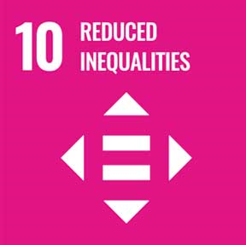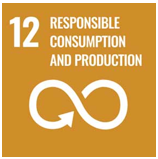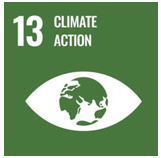2023 to 2024 Departmental Sustainable Development Strategy Report
Military Police Complaints Commission of Canada
Cat. No.: DP2‑12E‑PDF
ISSN: 2818‑7326
Unless otherwise specified, you may not reproduce materials in this publication, in whole or in part, for the purposes of commercial redistribution without prior written permission from Military Police Complaints Commission of Canada’s copyright administrator. To obtain permission to reproduce Government of Canada materials for commercial purposes, apply for Crown Copyright Clearance by contacting:
Military Police Complaints Commission of Canada
270 Albert Street, 10th floor
Ottawa, Ontario K1P 5G8
Email: commission@mpcc‑cppm.gc.ca
© His Majesty the King in Right of Canada, as represented by the Chairperson of the Military Police Complaints Commission of Canada, 2024.
Aussi disponible en français
Introduction to the 2023 to 2024 Departmental Sustainable Development Strategy Report

The 2022 to 2026 Federal Sustainable Development Strategy (FSDS) presents the Government of Canada’s sustainable development goals and targets, as required by the Federal Sustainable Development Act. This is the first FSDS to be framed using the 17 Sustainable Development Goals (SDGs) of the United Nations 2030 Agenda and provides a balanced view of the environmental, social, and economic dimensions of sustainable development.
In keeping with the purpose of the Act, to make decision-making related to sustainable development more transparent and accountable to Parliament, Military Police Complaints Commission of Canada (the Commission) supports the goals laid out in the FSDS through the activities described in the Commission 2023 to 2027 Departmental Sustainable Development Strategy (DSDS). This Report provides a report on progress related to the Commission’s DSDS in the fiscal year 2023 to 2024.
The Federal Sustainable Development Act also sets out 7 principles that must be considered in the development of the FSDS as well as DSDSs. These basic principles have been considered and incorporated in the Commission’s DSDS and 2023 to 2024 DSDS Report.
To promote coordinated action on sustainable development across the Government of Canada, the Commission’s departmental strategy reports on Canada’s progress towards implementing the 2030 Agenda and advancing the SDGs, supported by the Global Indicator Framework (GIF) and Canadian Indicator Framework (CIF) targets and indicators. The Report also now captures progress on SDG initiatives that fall outside the scope of the FSDS.
Commitments for Military Police Complaints Commission of Canada




GOAL 10: ADVANCE RECONCILIATION WITH INDIGENOUS PEOPLES AND TAKE ACTION ON INEQUALITY
FSDS Context:
This Goal’s focus on taking action on inequality and advancing reconciliation with First Nations, Inuit, and Métis communities draws inspiration from Sustainable Global Indicator Framework Targets:
- 10.2: By 2030, empower and promote the social, economic, and political inclusion of all, irrespective of age, sex, gender, disability, race, ethnicity, origin, religion or economic or other status.
- 10.3: Ensure equal opportunity and reduce inequalities of outcome, including by eliminating discriminatory laws, policies and practices and promoting appropriate legislation, policies, and action in this regard.
Reconciliation with Indigenous Peoples is essential to addressing social, economic, and environmental inequalities and achieving substantive equality. Urgent action is needed to close the social, economic, health, environmental protection, and educational gaps between Indigenous Peoples and the rest of Canadians to ensure that everyone in Canada has the same opportunities, regardless of who they are or where they were born.
In August 2021, the Government of Canada announced measures to renew and strengthen its economic relationship with Indigenous Peoples by increasing opportunities for Indigenous businesses. The Commission has started assessing early opportunities for participation by Indigenous businesses by:
- Assessing procurement activities for potential Indigenous participation in order to contribute gradually to reaching the 5% Target of Value of Federal Government contracts awarded to businesses managed and led by Indigenous Peoples; and
- Applying early opportunities for Indigenous businesses to submit bids and reviewing our processes with stakeholders to identify barriers for Indigenous businesses.
Target theme: Advancing reconciliation with First Nations, Inuit, and the Métis communities
Target: Between 2023 and 2026, and every year on an ongoing basis, develop and table annual progress reports on implementing the United Nations Declaration on the Rights of Indigenous Peoples Act
| IMPLEMENTATION STRATEGY | DEPARTMENTAL ACTION | PERFORMANCE INDICATOR STARTING POINT TARGET |
HOW THE DEPARTMENTAL ACTION CONTRIBUTES TO THE FSDS GOAL AND TARGET AND, WHERE APPLICABLE, TO CANADA’S 2030 AGENDA NATIONAL STRATEGY AND SDGS | RESULTS ACHIEVED |
|---|---|---|---|---|
| Implement the United Nations Declaration on the Rights of Indigenous Peoples Act | Assess procurement activities and apply early opportunities for Indigenous businesses. Program: Contract Authority in consultation with Corporate Services |
Performance indicator: Starting point: 3% Target: Reaching the mandatory 5% Government of Canada Objective |
Relevant targets or ambitions:
Applying early opportunities for Indigenous businesses will ensure that the Commission contributes to the Federal government’s commitment to award contracts to businesses managed and led by Indigenous Peoples. |
Indicator result:
The Commission exceeded the target of Percentage of monetary contract awarded to businesses managed and led by Indigenous Peoples of 5% by achieving 7.91% in 2023-24. Notes:To achieve these results, the organization has implemented several measures, including: Creating more opportunities for Indigenous businesses through strategic initiatives; conducting outreach to Indigenous communities via Industry Days; and reviewing and amending internal policies and tools related to procurement. |

GOAL 12:
REDUCE WASTE AND TRANSITION TO ZERO-EMISSION VEHICLES
FSDS Context:
The Commission identified measures to reduce energy consumption, improve energy efficiency and reduce greenhouse gas emissions in its operations. These measures include green procurement practices. For example, the Commission integrated environmental considerations into procurement practices by procuring green items and providing training on green procurement to credit card holders.
The Commission is also moving forward with plans to reduce paper use and establish electronic processes for delivering information in conjunction with its overall review of guidelines and processes. For example, Commission status letters, reports and decisions are now being transmitted to parties involved in the complaints process electronically, when possible, which includes the transmission of protected documents through a secure program via Canada Post. In addition, most of the Commission’s outreach program is delivered to our target audiences virtually, in which case the materials are provided electronically rather than in paper format.
Target Theme: Federal Leadership on Responsible Consumption
Target: The Government of Canada’s procurement of goods and services will be net-zero emissions by 2050, to aid the transition to a net-zero, circular economy
| IMPLEMENTATION STRATEGY | DEPARTMENTAL ACTION | PERFORMANCE INDICATOR STARTING POINT TARGET |
HOW THE DEPARTMENTAL ACTION CONTRIBUTES TO THE FSDS GOAL AND TARGET AND, WHERE APPLICABLE, TO CANADA’S 2030 AGENDA NATIONAL STRATEGY AND SDGS | RESULTS ACHIEVED |
|---|---|---|---|---|
| Strengthen green procurement criteria | Ensure decision-makers have the necessary training and awareness to support green procurement. Ensure training is provided to acquisition card holders on green procurement. Program: |
Performance indicator: Starting point: Target: 100% and subsequent retention. |
Relevant targets or ambitions: Providing training to decision-makers and employees involved in acquisition processes will ensure the Commission procures goods and services from suppliers that offer green products and have implemented green supply chains. Ensuring Commission suppliers have sustainable processes supports the Commission’s commitment to greening all of our operations. |
Indicator result:
90% of managers and credit card holders have completed the Canada School of Public Service Green Procurement course or equivalent in 2023-24 which significantly surpassed our starting point of 43% and is near our target. |

GOAL 13:
TAKE ACTION ON CLIMATE CHANGE AND ITS IMPACTS
FSDS Context:
The Commission identified a range of measures to reduce energy consumption, improve energy efficiency and reduce greenhouse gas emissions from its operations. These measures include ensuring to take into account sustainability when choosing modes of travel. For example, the Commission will offer employee engagement initiatives and energy awareness training to increase employee knowledge and responsiveness to environmental concerns across our operations. The Commission has also increased online meetings including Outreach Activities and it will continue to seek ways to limit negative environmental effects from its activities.
Finally, the Commission maintained the implementation of its efficient hybrid model established in the first half of 2022 and which took effect in September 2022. The hybrid model reduces the carbon footprint of employees. In addition, progressive solutions have been put in place to increase the global on-site presence of employees, balancing the benefits of the hybrid model, and fostering employee collaboration. The Commission made technology investments in Boardroom Equipment to support the hybrid work arrangements.
Target theme: Federal Leadership on Greenhouse Gas Emissions Reductions and Climate Resilience
Target: The Government of Canada will transition to net-zero carbon operations for facilities and conventional fleets by 2050
| IMPLEMENTATION STRATEGY |
DEPARTMENTAL ACTION | PERFORMANCE INDICATOR STARTING POINT TARGET |
HOW THE DEPARTMENTAL ACTION CONTRIBUTES TO THE FSDS GOAL AND TARGET AND, WHERE APPLICABLE, TO CANADA’S 2030 AGENDA NATIONAL STRATEGY AND SDGS | RESULTS ACHIEVED |
|---|---|---|---|---|
| Implement the Greening Government Strategy through measures that reduce greenhouse gas emissions, improve climate resilience, and green the government’s overall operations. | Identify measures to reduce energy consumption and improve energy efficiency. Assess the relevance of printed copies of documents and reports. Program: |
Performance indicator: 1. Percentage of local printers used by person employed working from home and returned to the Commission’s central office. Starting point: Target: 25% of reduction |
Relevant targets or ambitions: Continuing the modernization of the Information Technology infrastructure to reduce electricity consumption in the server room and reduce the risk of server breakdowns due to air-conditioning problems. |
Indicator result: Notes: The Commission has initiated discussions on the way forward for the reduction of local printers at employees’ homes in 2023-24. |
Performance indicator: 2. Percentage of the reduction of the number of paper copies printed on the office photocopier and the number of printed reports documents. Starting point: Number of printed copies as of October 2, 2023. Target: 50% of reduction |
Relevant targets or ambitions: |
Indicator result: Notes: The Commission’s indicator starting point was the number of printed copies as of October 2, 2023, as such, the Commission will provide an indicator result in the fiscal year 2024-25 report. Progress that we have made: |
||
| Performance indicator: 3. Percentage of decrease in transportation expenses and increase in low-greenhouse gas emitting modes of transportation. Starting point: total spending as of March 31, 2024 Target: 5% of reduction |
Relevant targets or ambitions: Increasing low-greenhouse gas emitting modes of transportation supports the Commission’s commitment to reducing greenhouse gas emissions. |
Indicator result: Notes: The Commission’s indicator starting point was the total spending as of March 31, 2024, as such, the Commission will provide an indicator result in the fiscal year 2024-25 report. Currently we are accumulating information to provide an accurate representation of the reduction rate, as the previous fiscal year 2022-23, travel was reduced significantly due to health restrictions throughout Canada. |
Integrating Sustainable Development

The Commission is a civilian, quasi-judicial oversight agency and administrative tribunal with approximately 30 employees. Its core responsibility is to provide independent, civilian oversight of the Canadian Forces Military Police. As such, the Commission is quite limited in the actions it can take to address the 17 SDGs of the United Nations 2030 Agenda.
The Commission will however continue to ensure that its business processes include consideration of FSDS goals and targets. While we understand the importance of the Strategic Environmental Assessment (SEA) process, the Commission did not complete any detailed SEA in 2023-24. The Commission is committed to supporting sustainable development and incorporating environmental considerations into its policies, plans and programs in a meaningful way, albeit the impact will be small given the size of our organisation. We believe that every contribution, however small, can make a difference.
- Date modified: